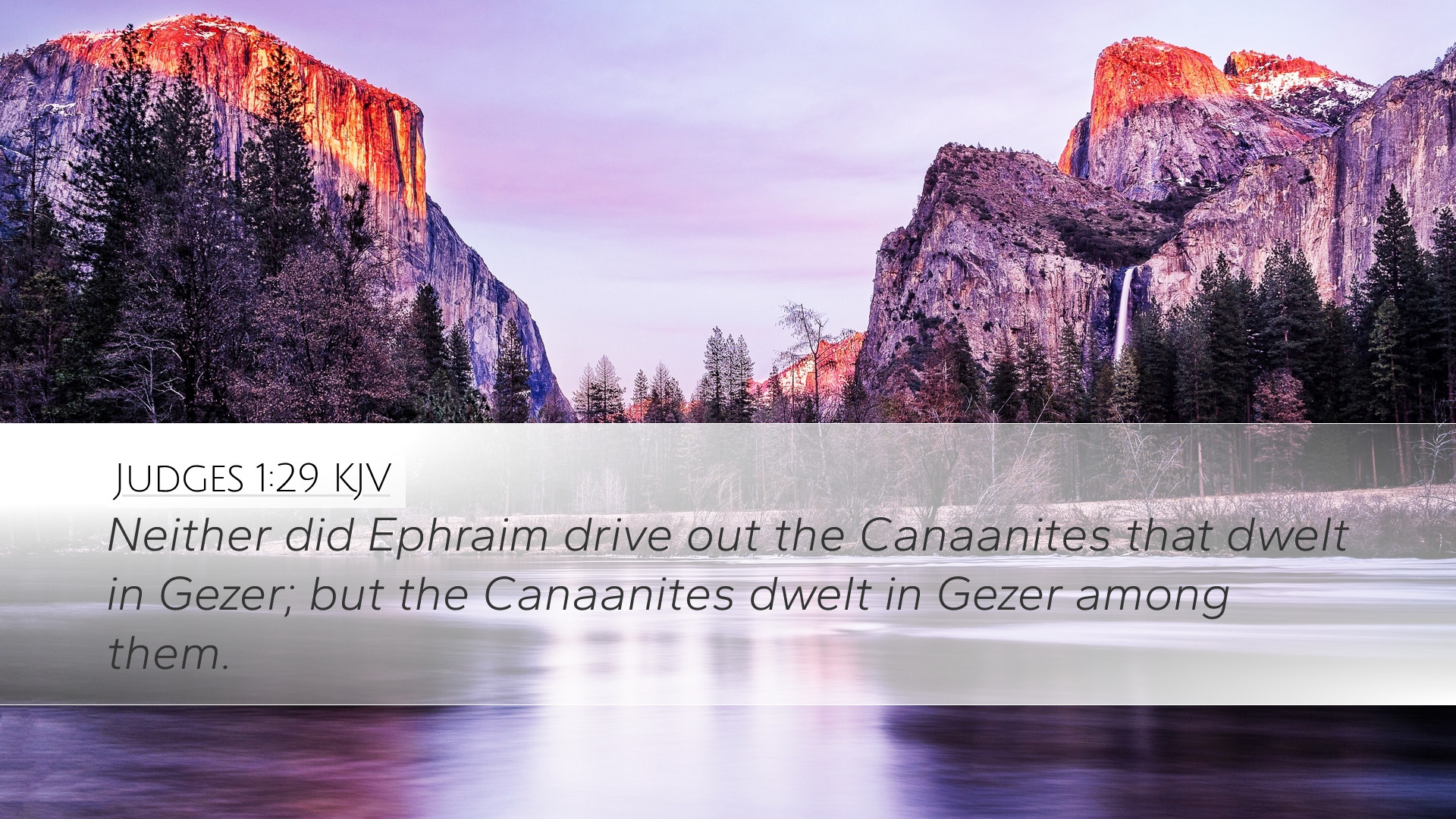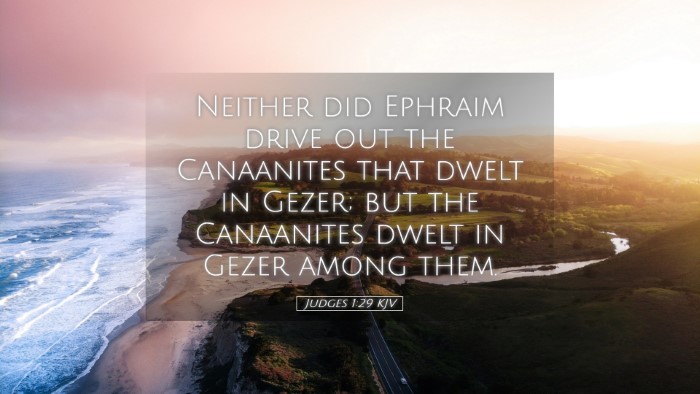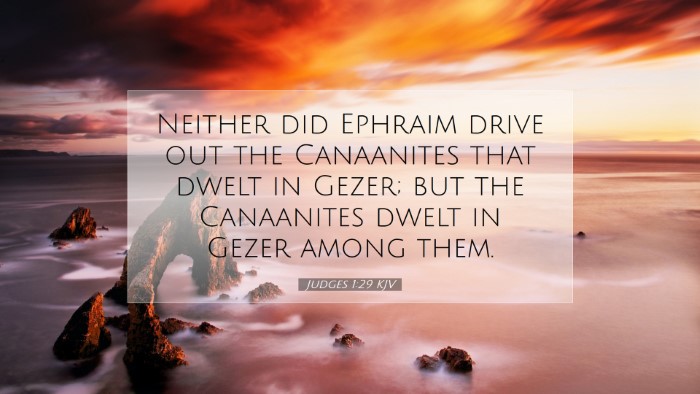Commentary on Judges 1:29
Verse Text: "And Ephraim did not drive out the Canaanites that dwelt in Gezer; but the Canaanites dwelt among them." (Judges 1:29)
Introduction
The Book of Judges presents a complex and often troubling history of Israel during a time of transition between the conquest of Canaan and the establishment of the monarchy. In this context, Judges 1:29 highlights the failures of the tribe of Ephraim in fulfilling God's command regarding the Canaanites. This verse serves as a critical reflection on disobedience, the consequences of compromise, and the enduring struggle Israel faced in maintaining their covenant identity.
Historical Context
The context of Judges is pivotal to understand this verse. After the death of Joshua, the Israelites were tasked with driving out the remaining inhabitants of the land. The tribes were each allocated portions of territory and were expected to secure them by conquering the Canaanites who dwelt there. Ephraim, a significant tribe, had been given a rich and fertile area but failed to eradicate the Canaanites from Gezer, which serves as a notable example of the incomplete obedience that permeates the narratives of the Judges.
Theological Insights
This verse encapsulates several theological principles that resonate throughout the Scriptures:
- Disobedience and Its Consequences: Ephraim's failure to drive out the Canaanites speaks to the broader theme of Israel's disobedience. Commentators emphasize that their willingness to coexist with these nations was a direct rejection of God's commands (Deuteronomy 7:1-2). The presence of Canaanites among them foreshadows the spiritual and moral decline that would ensue.
- Compromise: The coexistence of Ephraim with the Canaanites symbolizes a compromise that often leads to deeper problems. Adam Clarke notes that such compromises can lead to the erosion of faithfulness and identity as God’s chosen people. The acceptance of foreign influence can corrupt worship and ethics.
- The Nature of God's Faithfulness: Albert Barnes highlights that, even amidst their failures, God remains faithful to His promise. While the Canaanites lived among the Israelites, this situation leads to a complex relationship where God uses even these difficulties for a greater purpose in the history of Israel.
Exegesis of the Verse
When examining the text linguistically and culturally, several aspects stand out:
- “Did not drive out”: The phrase indicates a conscious decision made by Ephraim, suggesting a lack of zeal or commitment to the task at hand. Matthew Henry points out that it reflects an attitude of complacency that would hinder Israel’s progress.
- Canaanites in Gezer: Gezer was strategically located and significant. Its continued occupation by Canaanites meant that the surrounding areas would likely face military threats and spiritual influences that led to syncretism in worship, a repeated theme throughout Judges.
- “Dwelt among them”: The use of “dwelt” suggests not merely coexistence but a relational aspect that can imply assimilation. This is critical because it demonstrates the integration of foreign practices and beliefs, which would lead the Israelites away from their covenant with God.
Application for Today
The lessons from Judges 1:29 are profoundly relevant for modern believers, especially pastors and students of scripture:
- Call to Obedience: Just as Ephraim was called to be distinct and faithful, so are believers today. This verse serves as a reminder of God's commands and the importance of thorough obedience. Partial obedience leads to unresolved issues that can grow into larger problems, affecting the community and its faith.
- Awareness of Compromise: The existence of Canaanites among the Israelites serves as a cautionary tale regarding cultural influences that can dilute faith. Pastors should encourage their congregations to evaluate their practices and beliefs against the standards set forth in Scripture.
- Understanding God’s Sovereignty: Even in the failures of His people, God is still sovereign. The story of Israel is one of redemption. For theologians, this serves as a reminder of God's overarching plan in the face of human frailty and disobedience.
Conclusion
Judges 1:29 stands as a vivid reminder of the challenges of faithfulness. Through the story of Ephraim, readers are challenged to reflect on their own lives concerning obedience and compromise. Public domain commentaries enlighten this passage, providing a robust understanding of its implications for the church today. The historical and theological insights gleaned from this text encourage contemporary believers to pursue a deep, uncompromising relationship with God.


